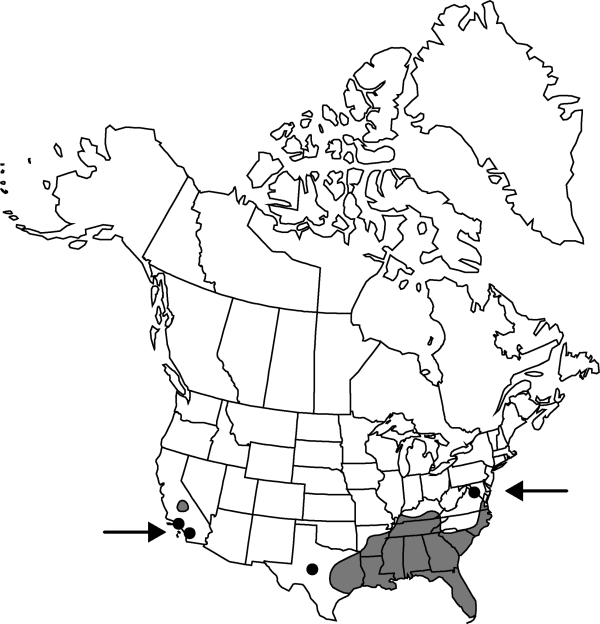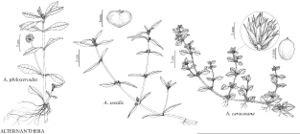Alternanthera philoxeroides
Abh. Königl. Ges. Wiss. Göttingen 24: 36. 1879.
Herbs, perennial, aquatic to semiterrestrial, stoloniferous, to 50 dm. Stems prostrate, forming mats, often fistulose, glabrous. Leaves sessile; blade narrowly elliptic, elliptic, or oblanceolate, 3.5–7.1 × 0.5–2 cm, herbaceous, apex acute to obtuse, glabrous. Inflorescences terminal and axillary, pedunculate; heads white, globose, 1.4–1.7 cm diam.; bracts not keeled, less than 1/2 as long as tepals. Flowers: tepals monomorphic, white, lanceolate or oblong, 6 mm, apex acute, glabrous; stamens 5; pseudostaminodes ligulate. Utricles not seen. Seeds not seen.
Phenology: Flowering early spring–summer.
Habitat: Ponds, ditches, streams, bayous
Elevation: 0-200 m
Distribution

Introduced; Ala., Ark., Calif., Fla., Ga., Ill., Ky., La., Miss., N.C., S.C., Tenn., Tex., Va., West Indies, native to South America.
Discussion
Alternanthera philoxerioides is said to reproduce only vegetatively in North America. I have seen no fruit or seed.
Selected References
None.
